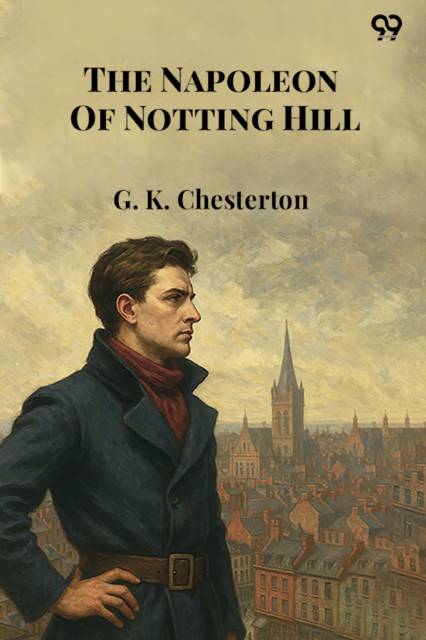
Bedankt voor het vertrouwen het afgelopen jaar! Om jou te bedanken bieden we GRATIS verzending (in België) aan op alles gedurende de hele maand januari.
- Afhalen na 1 uur in een winkel met voorraad
- In januari gratis thuislevering in België
- Ruim aanbod met 7 miljoen producten
Bedankt voor het vertrouwen het afgelopen jaar! Om jou te bedanken bieden we GRATIS verzending (in België) aan op alles gedurende de hele maand januari.
- Afhalen na 1 uur in een winkel met voorraad
- In januari gratis thuislevering in België
- Ruim aanbod met 7 miljoen producten
Zoeken
Omschrijving
The Napoleon of Notting Hill is a satirical novel set in a future London, where society has embraced a life of monotony and lost faith in revolutions. The central character is a quirky government clerk who unexpectedly becomes king, leading to a series of whimsical and absurd events triggered by his misguided ideas about governance and patriotism. The narrative begins by showcasing the complacency of society, where predictions about the future are ignored, and people continue with their daily routines. The clerk disrupts this by advocating for the revival of local identities and medieval traditions, including the creation of city guards and proclamations for London's boroughs. This results in humorous chaos as the extravagant ideas clash with the apathy of those around him, offering a satirical commentary on governance, identity, and the nature of individualism in an increasingly modern world. The opening sets the stage for a contrast between the eccentric actions and the indifference of the people, emphasizing the absurdity of this vision in a rapidly changing society.
Specificaties
Betrokkenen
- Auteur(s):
- Uitgeverij:
Inhoud
- Aantal bladzijden:
- 146
- Taal:
- Engels
Eigenschappen
- Productcode (EAN):
- 9789371468053
- Verschijningsdatum:
- 1/05/2025
- Uitvoering:
- Paperback
- Formaat:
- Trade paperback (VS)
- Afmetingen:
- 140 mm x 216 mm
- Gewicht:
- 176 g

Alleen bij Standaard Boekhandel
+ 47 punten op je klantenkaart van Standaard Boekhandel
Beoordelingen
We publiceren alleen reviews die voldoen aan de voorwaarden voor reviews. Bekijk onze voorwaarden voor reviews.









